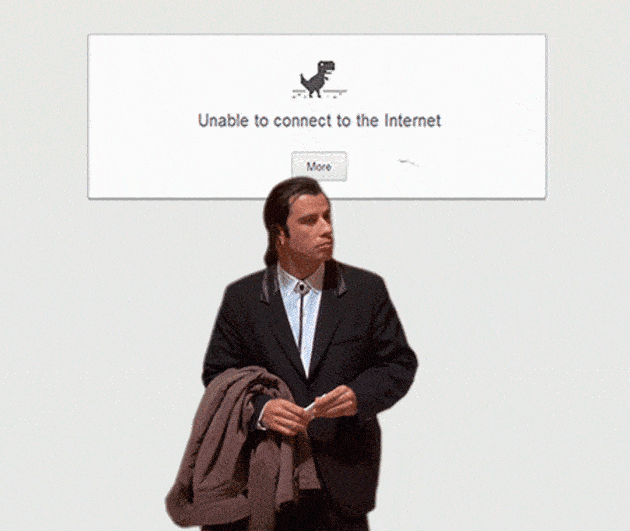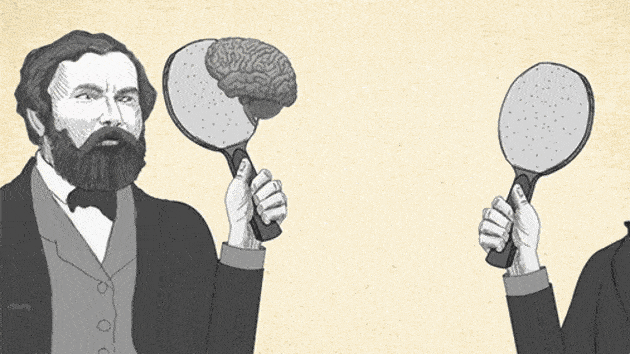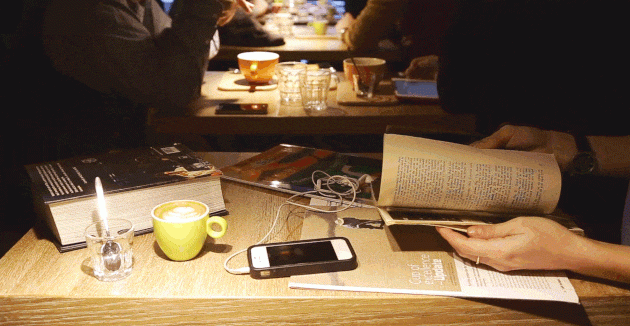Umberto Eco, an Italian writer and philosopher, wrote an amazing letter in its wisdom and depth, which is addressed to his grandson. It is called "Dear grandson, learn by heart". The main idea in it is that we suffer from poor memory and create for ourselves, instead of training it, crutches in the form of Google, gadgets and various web services.
We limit our lives to our own and ignore the experience of past generations. Read it in full and admit to yourself that something needs to be done with memory and this is not a utilitarian question, it is a question of understanding the world and what is happening in it. It's a matter of survival!
One day you will grow old, but you will feel that you have lived a thousand lives, as if you participated in the Battle of Waterloo, were present at the murder of Julius Caesar, visited the place where Berthold Schwartz, mixing various substances in a mortar in an attempt to get gold, accidentally invented gunpowder and flew up into the air (and it serves him right!) And your other friends, who do not seek to enrich their memory, will live only one life of their own, monotonous and devoid of great emotions.
I wanted to talk to you about the disease that has affected your and the previous generation, who are already studying at universities. I'm talking about memory loss.
It's true that if you want to find out who Charlemagne is or where Kuala Lumpur is, then you can click on the button and immediately find out everything from the Internet. Do this when you need to, but after receiving the certificate, try to remember its contents so as not to look for a second time when you need this knowledge at school, for example. The bad thing is that understanding that a computer can answer your question at any time discourages you from memorizing information.

The following comparison can be made to this phenomenon: after learning that you can get from one street to another by bus or metro, which is very convenient in case of a hurry, a person decides that he no longer needs to walk. But if you stop walking, you will turn into a person who has to move around in a wheelchair. Oh, I know you play sports and know how to control your body, but back to your brain.
Memory is like the muscles of your legs. If you stop exercising it, it will become flabby, and you (let's be blunt) will turn into an idiot. In addition, we all risk getting Alzheimer's disease in old age, and one way to avoid this trouble is to constantly exercise our memory.
Every morning, learn some short poem, as we were forced to do in childhood. You can arrange a competition with friends for the best memory. If you don't like poetry, then you can remember the composition of football teams, but you should know the players of not only the team of the Club of Rome, but also the players of other teams, as well as their composition in the past (imagine that I remember the names of the players of the Turin club who were on board the plane that crashed on Superga Hill: Bacigalupo, Ballarin, Maroso and so on).
Compete in who remembers the contents of the books you read better (who was on board the Hispaniola, which went in search of treasure island? Lord Trelawny, Captain Smollett, Dr. Livesey, John Silver, Jim...) Find out if your friends remember the names of the servants of the three Musketeers and d'Artagnan (Grimaud, Bazin, Mousqueton and Planchet)… And if you don't want to read The Three Musketeers (although you don't know what you're losing), then do a similar game with the book you've read.

It seems like a game, and it is a game, but you will see how your head will be filled with characters, stories and a variety of memories.
You will ask why a computer was once called an electronic brain. This is because it was conceived according to the model of your (our) brain, but the human brain has more connections than a computer.
The brain is a computer that is always with you, its capabilities expand as a result of exercise, and your desktop computer loses speed after prolonged use and requires replacement after a few years. And your brain can last you up to 90 years, and in ninety years, if you exercise it, you will remember more than you remember now. It's also free.
There is also a historical memory that is not related to the facts of your life or what you have read. It stores the events that happened before you were born.
Today, if you go to the cinema, you have to come to the beginning of the movie. When the movie starts, it's like you're being led by the hand all the time, explaining what's going on. In my day, you could walk into a movie theater at any moment, even in the middle of a movie. A lot of things happened before you came, and you had to figure out what happened earlier. When the movie started over, you could see if your reconstruction was correct. If you liked the movie, you could stay and watch it again.
Life is like watching a movie in my time.
We are born at a time when many events have already happened for hundreds of thousands of years, and it is important to understand what happened before we were born. This is necessary in order to better understand why so many new events are happening today.
Today, the school (in addition to your own reading circle) should teach you to remember what happened before you were born, but it does not succeed well. Various surveys show that today's young people, even university students born in 1990, do not know, and perhaps do not want to know about what happened in 1980, let alone what happened 50 years ago. Statistics say that when young people are asked who Aldo Moro is, they answer that he headed the "Red Brigades", but he was killed by members of this underground leftist organization.
The activities of the "Red Brigades" remain a mystery to many, but they were present on the political scene only thirty years ago. I was born in 1932, ten years after the fascists came to power, but I knew who was prime minister at the time of the march on Rome. Maybe they told me about him at the fascist school to explain how stupid and bad this minister ("cowardly Fact") was, displaced by the fascists. Even so, I knew about it.
But let's leave aside the school. Today's young people do not know the movie artists of twenty years ago, and I knew who Francesca Bertini was, who starred in silent films twenty years before I was born. Maybe it was because I was leafing through old magazines piled up in the pantry of our house. I also suggest you to flip through old magazines, because it helps to understand what happened before you were born.

Because often such knowledge helps to understand the course of today's events and in any case, as knowledge of the composition of football teams, helps to enrich our memory.
Keep in mind that you can train your memory not only with the help of books and magazines, but also with the help of the Internet. It is suitable not only for chatting with your friends, but also for studying world history. Who are the Hittites and Camisards? What were the names of Columbus' three ships? When did dinosaurs become extinct? Was there a steering wheel on Noah's Ark? What was the ancestor of the bull called? A hundred years ago there were more tigers than there are now? What do you know about the Mali Empire? Who told you about it? Who was the second Pope in history? When was Mickey Mouse created?
I could keep asking questions indefinitely, and they would become great topics for research. All this must be remembered. One day you will grow old, but you will feel that you have lived a thousand lives, as if you participated in the Battle of Waterloo, were present at the murder of Julius Caesar, visited the place where Berthold Schwartz, mixing various substances in a mortar in an attempt to get gold, accidentally invented gunpowder and flew up into the air (and it serves him right!). And your other friends, who do not seek to enrich their memory, will live only one life of their own, monotonous and devoid of great emotions.
So, enrich your memory and tomorrow learn from memory "La Vispa Teresa".
The translation of Umberto Eco's letter was made by the Inosmi website.